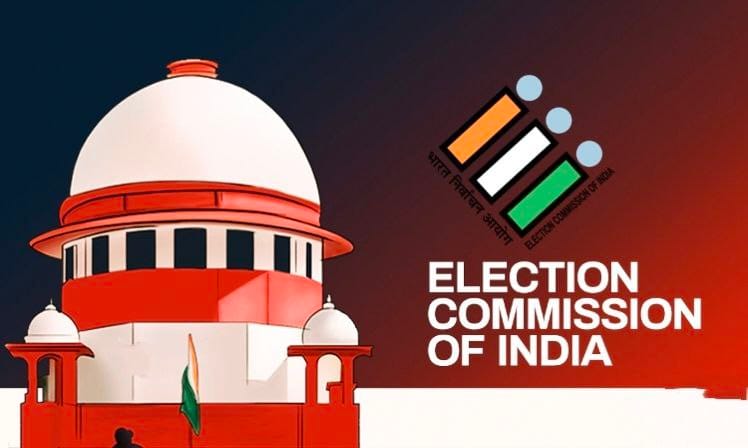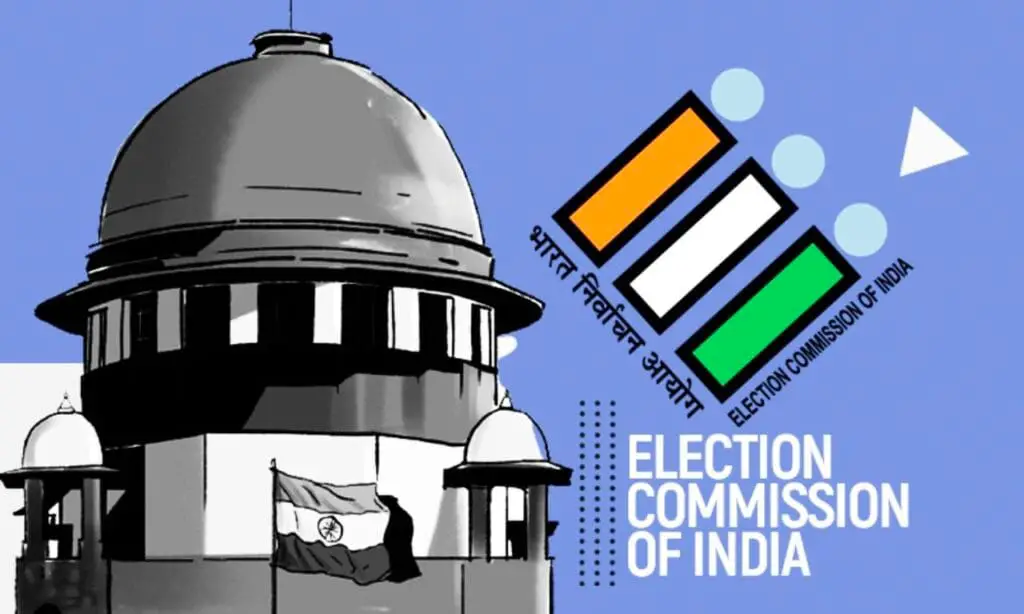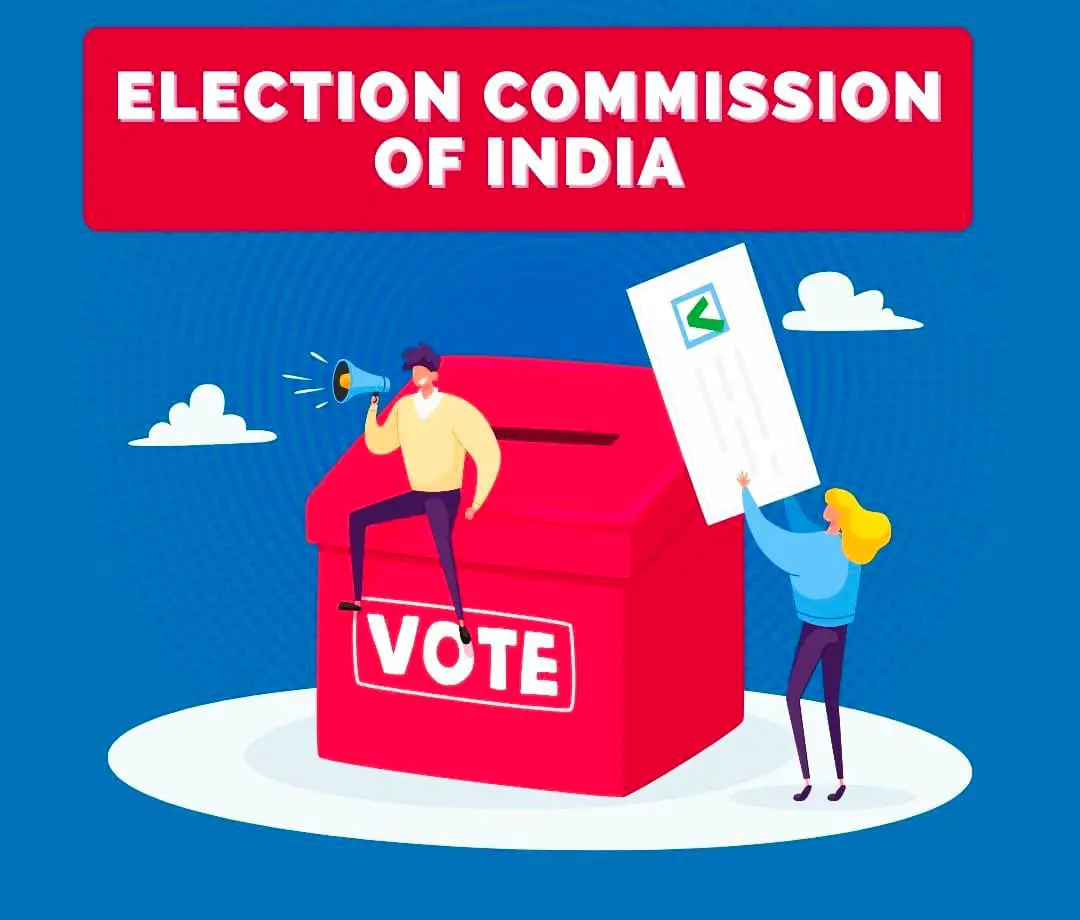Election Commission of India (ECI): Composition and Functions
The Election Commission of India (ECI) is an autonomous constitutional authority responsible for administering elections in India at both the central and state levels. It ensures the conduct of free, fair, and transparent elections in India as per the principles enshrined in the Constitution.

1. Composition of the Election Commission of India
The Election Commission of India is established under Article 324 of the Indian Constitution. Initially, it was a single-member body but later evolved into a multi-member body.
Current Composition:
- Chief Election Commissioner (CEC): The head of the ECI, responsible for overall functioning and decision-making. The CEC enjoys a secure and independent tenure.
- Two Election Commissioners: Appointed to assist the CEC. The ECI was made a multi-member body in 1989 with the addition of two Election Commissioners.
Appointment:
- The President of India appoints the Chief Election Commissioner and the Election Commissioners.
Tenure:
- The CEC and other Election Commissioners hold office for a term of 6 years or until they reach the age of 65 years, whichever is earlier.
Removal:
- The Chief Election Commissioner can only be removed from office through a process similar to the removal of a Supreme Court judge, i.e., by a special majority in Parliament on grounds of proven misbehavior or incapacity.
- The Election Commissioners, on the other hand, can be removed by the President on the recommendation of the Chief Election Commissioner.
2. Functions and Powers of the Election Commission of India
The Election Commission of India plays a vital role in ensuring the smooth conduct of elections in a free and fair manner. Its functions and powers are extensive and cover various aspects of the electoral process.

Key Functions of the ECI:
- Conducting Elections:
- The primary function of the ECI is to conduct free and fair elections for the following bodies:
- Lok Sabha (House of the People)
- Rajya Sabha (Council of States)
- State Legislative Assemblies and State Legislative Councils
- President and Vice-President of India
- The Commission is responsible for scheduling election dates, preparing electoral rolls, and ensuring that elections are conducted smoothly.
- The primary function of the ECI is to conduct free and fair elections for the following bodies:
- Supervision and Control:
- The ECI has supervisory authority over the entire electoral process, including polling stations, voter turnout, and adherence to election rules by candidates, political parties, and the public.
- Model Code of Conduct (MCC):
- The ECI enforces the Model Code of Conduct, which political parties and candidates must follow during elections. The MCC ensures that the electoral process remains fair and prevents candidates from engaging in activities like vote-buying, hate speech, or excessive campaign spending.
- Preparation of Electoral Rolls:
- The ECI is responsible for preparing and updating the electoral rolls, ensuring the inclusion of all eligible voters and removing those who are ineligible (due to death, disqualification, or relocation).
- Political Party Registration and Regulation:
- The Election Commission registers new political parties and grants them recognition based on established criteria. It also regulates existing political parties, ensuring their adherence to the electoral laws and the Representation of the People Act, 1951.
- Election Symbols:
- The ECI allocates symbols to political parties. Recognized parties are allotted permanent symbols, while unrecognized parties and independent candidates are assigned temporary symbols for elections.
- Voter Education and Awareness:
- The ECI is involved in voter education initiatives to promote awareness about voting rights, encouraging greater voter turnout. It also conducts campaigns like Systematic Voters’ Education and Electoral Participation (SVEEP) to engage young and first-time voters.
- Electoral Reforms:
- The ECI plays an active role in recommending and implementing electoral reforms to make the electoral process more transparent and efficient. This includes recommendations on issues such as:
- Criminalization of politics
- Campaign finance regulation
- Use of electronic voting machines (EVMs) and Voter Verifiable Paper Audit Trail (VVPAT)
- The ECI plays an active role in recommending and implementing electoral reforms to make the electoral process more transparent and efficient. This includes recommendations on issues such as:
- Monitoring Election Expenditure:
- The ECI monitors the election spending of political parties and candidates to ensure adherence to expenditure limits and prevent undue influence on voters through money or resources.
- Addressing Election Disputes:
- The ECI has quasi-judicial powers and can handle disputes related to the conduct of elections, the violation of the Model Code of Conduct, or election malpractices.
- Advisory Role:
- The ECI plays an advisory role in matters relating to the disqualification of Members of Parliament (MPs) and Members of Legislative Assemblies (MLAs) based on the provisions of the Constitution and the Representation of the People Act.
- It also advises the President of India and the Governor of States in matters related to electoral processes and their disputes.
- By-elections:
- The ECI is responsible for conducting by-elections to fill vacant seats in Parliament and state legislatures when they occur due to death, resignation, or disqualification of members.
- Use of Technology in Elections:
- The ECI has introduced technological innovations such as the use of Electronic Voting Machines (EVMs) and the Voter Verifiable Paper Audit Trail (VVPAT) system to ensure accurate and transparent voting.
3. Challenges and Criticisms
While the Election Commission of India is widely respected for its autonomy and effectiveness, it has faced certain challenges and criticisms, including:
- Election-related violence and the need for better enforcement of the MCC.
- Political neutrality and concerns over perceived bias in the actions of the Election Commission.
- Fake news and misinformation, which have become significant challenges in recent elections, especially with the rise of social media.
- Ensuring the inclusivity of elections, particularly for marginalized communities and remote areas.
Conclusion:
The Election Commission of India plays a pivotal role in maintaining the integrity and fairness of India’s democratic process. Its functions ensure that elections are conducted according to constitutional mandates, with transparency and fairness, making it a crucial pillar of India’s democracy. Despite challenges, the ECI remains one of the most respected institutions in India’s democratic framework.

